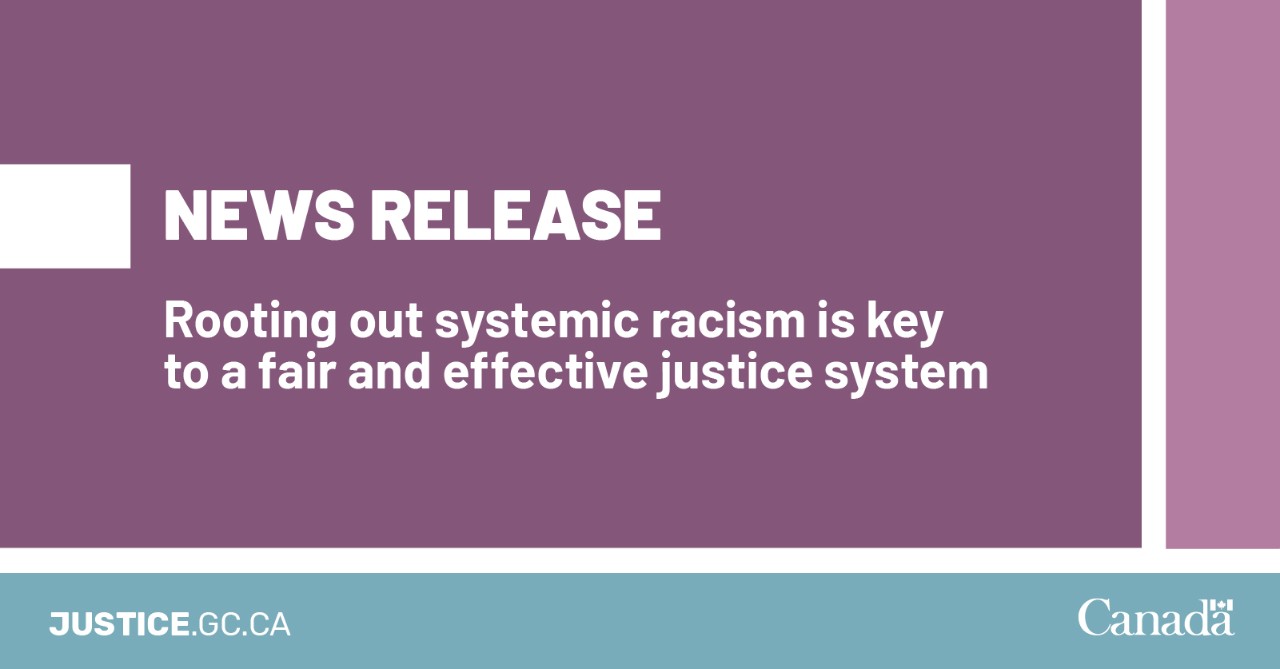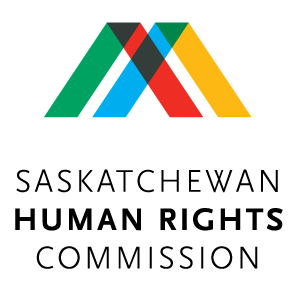Canada’s justice system must keep all Canadians, their families, and communities safe while promoting fairness. Recent events have further demonstrated that systemic racism in the criminal justice system has resulted in the overincarceration of Indigenous peoples, Black Canadians and members of marginalized communities. The Government of Canada is committed to addressing this issue.
Consistent with the Government’s commitment to reintroduce former Bill C-22 in the first 100 days of its mandate, today, the Honourable David Lametti, Minister of Justice and Attorney General of Canada, introduced Bill C-5, which proposes amendments to the Criminal Code and to the Controlled Drugs and Substances Act (CDSA).
These proposed changes would reform sentencing measures for certain offences, including by repealing some of the mandatory minimum penalties of imprisonment (MMPs) that contribute to higher rates of imprisonment and disproportionately affect, in particular, Indigenous peoples and Black Canadians. This would ensure judges are better equipped to impose appropriate sentences. The legislation also increases the availability of conditional sentence orders (CSOs) where appropriate, and encourages greater use of diversion programs.
In keeping with the Government’s public-health centred approach to addiction and the opioid epidemic that has affected families and communities across the country, this bill proposes specific amendments to the CDSA. These changes would require police and prosecutors to consider alternatives, including diverting individuals to treatment programs, instead of laying charges or prosecuting individuals for simple drug possession.
The Bill proposes the following specific reforms:
- Repeal MMPs for certain offences to address the disproportionate impact on Indigenous and Black offenders, as well as those struggling with substance use and addiction. This would restore the ability of a judge to impose appropriate sentences that respond to the facts of the case before them, including the individual’s experience with systemic racism and the risk they pose to public safety. This moves away from the rigid one-size-fits-all approach, which has not deterred crime but has resulted in unfair outcomes and a less effective criminal justice system, as well as longer and more complex trials.
- Allow for greater use of CSOs in cases where an offender faces a term of less than two years imprisonment and does not pose a threat to public safety. Under these circumstances, judges would have the option to order that the term be served in the community under strict conditions, including house arrest, curfew, and mandatory counselling or treatment for substance use. This change would allow for more effective rehabilitation and reintegration by enabling individuals to maintain their employment, or continue caring for children or family members in need. This approach has been proven to reduce re-offending.
- Require police and prosecutors to consider other measures such as diversion to addiction treatment programs, rather than laying charges or prosecuting individuals for simple possession of an illegal drug. The proposed amendments to the CDSA reinforce the Government’s commitment to treat substance use as a health issue, and address the opioid crisis. It also aligns with calls heard from many in the law enforcement community and local leaders across the country.
This proposed legislation represents part of the Government’s broader efforts to root out systemic racism throughout Canadian society and foster a safer and fairer future for all Canadians.
These measures complement a number of new investments, including in Budget 2021 and the 2020 Fall Economic Statement. This includes funding to support engagement with Indigenous communities and organizations on the development of legislation and initiatives that address systemic barriers in the criminal justice system, including collaboration on an Indigenous Justice Strategy. The Government is also funding community organizations and programs that support at-risk youth, provide alternatives to criminal charges where appropriate, and help address inequities faced by Indigenous peoples, Black Canadians and other racialized individuals in the justice system. The Government has also committed to developing a Black Canadians Justice Strategy.
Quotes
“Serious criminals deserve to be seriously punished and kept away from our communities. But too many lower-risk and first-time offenders, including a disproportionate number of Indigenous peoples and Black Canadians, are being sent to prison because of laws that do not deter crime or help keep our communities safe. Along with other efforts across government, these reforms represent an important step forward in the fight to root out systemic racism and ensure a more effective justice system for all.”
The Honourable David Lametti, P.C., Q.C., M.P.
Minister of Justice and Attorney General of Canada
Quick facts
-
The Government is responding to calls for reform from Canadians as well as organizations and commissions, including the Parliamentary Black Caucus, the Truth and Reconciliation Commission of Canada, and the National Inquiry into Missing and Murdered Indigenous Women and Girls.
-
Data shows that, between 2007-2008 and 2016-2017, Black and other racialized offenders were more likely to be admitted to federal custody for an offence punishable by an MMP. It also shows that the proportion of Indigenous offenders admitted with an offence punishable by an MMP has significantly increased over the past 10 years. (Source: Correctional Service of Canada)
-
In 2018-2019, despite representing 5% of the Canadian adult population, Indigenous adults accounted for 30% of federally incarcerated inmates. (Sources: Office of the Correctional Investigator, Statistics Canada’s Population and Demography Statistics)
-
In 2018-2019, Black inmates represented 7% of the federal offender population but only 3% of the Canadian population. (Sources: 2018 Corrections and Conditional Release Statistical Overview, Statistics Canada’s Population and Demography Statistics)
-
According to the 2012 Canadian Community Health Survey, Canadians with a mental or substance use are nine times more likely to come into contact with police for problems with their emotions, mental health or substance use, and four times more likely to be arrested than Canadians without a mental or substance use.
-
These changes would repeal MMPs for 14 of the 67 offences covering a broad range of conduct punishable by MMPs under the current Criminal Code. All of the Controlled Drugs and Substances Act MMPs would be repealed.
-
Under the current Criminal Code, an offence punishable by an MMP requires that the judge impose a sentence equal to or greater than the minimum term for that offence. This is true even in cases where the judge finds that imprisonment is not appropriate under the facts of the case.
-
Gladue Principles oblige judges to take into account the background, intergenerational effects of colonialism, such as residential schools, and other systemic factors at sentencing. Gladue reports are prepared by court caseworkers to inform alternatives to imprisonment, which can include Indigenous-based alternatives.
-
Impact of Race and Culture Assessments provide information to allow sentencing judges to consider how disadvantages and systemic racism contributed to an individual’s interaction with the criminal justice system.
-
Community Justice Centres (CJCs) are an innovative approach for moving justice out of the traditional courtroom, and into a community setting. CJCs bring together justice, health, employment, education and social services to collectively address the root cause of crime, break the cycle of offending, and improve public safety and community well-being.
Click here for the Government of Canada news release.











